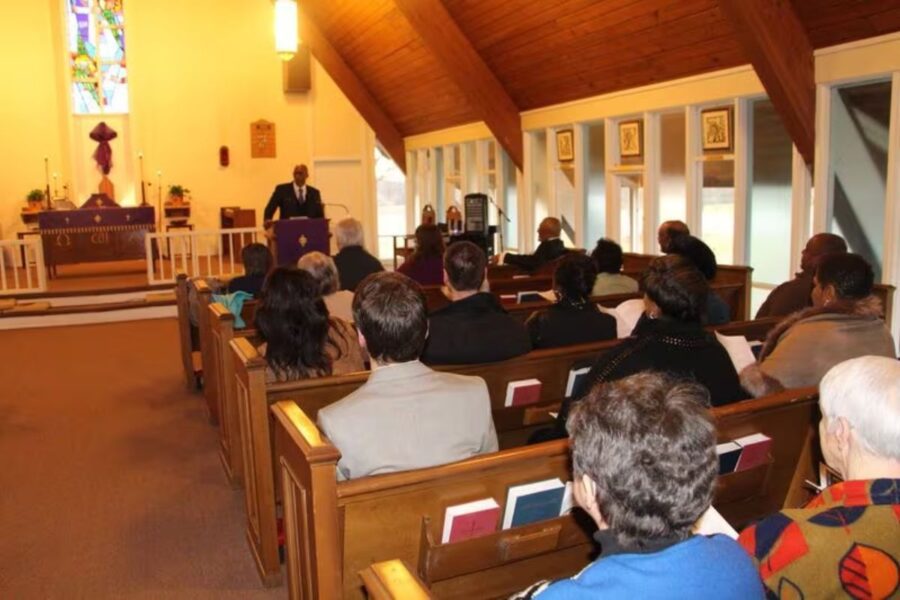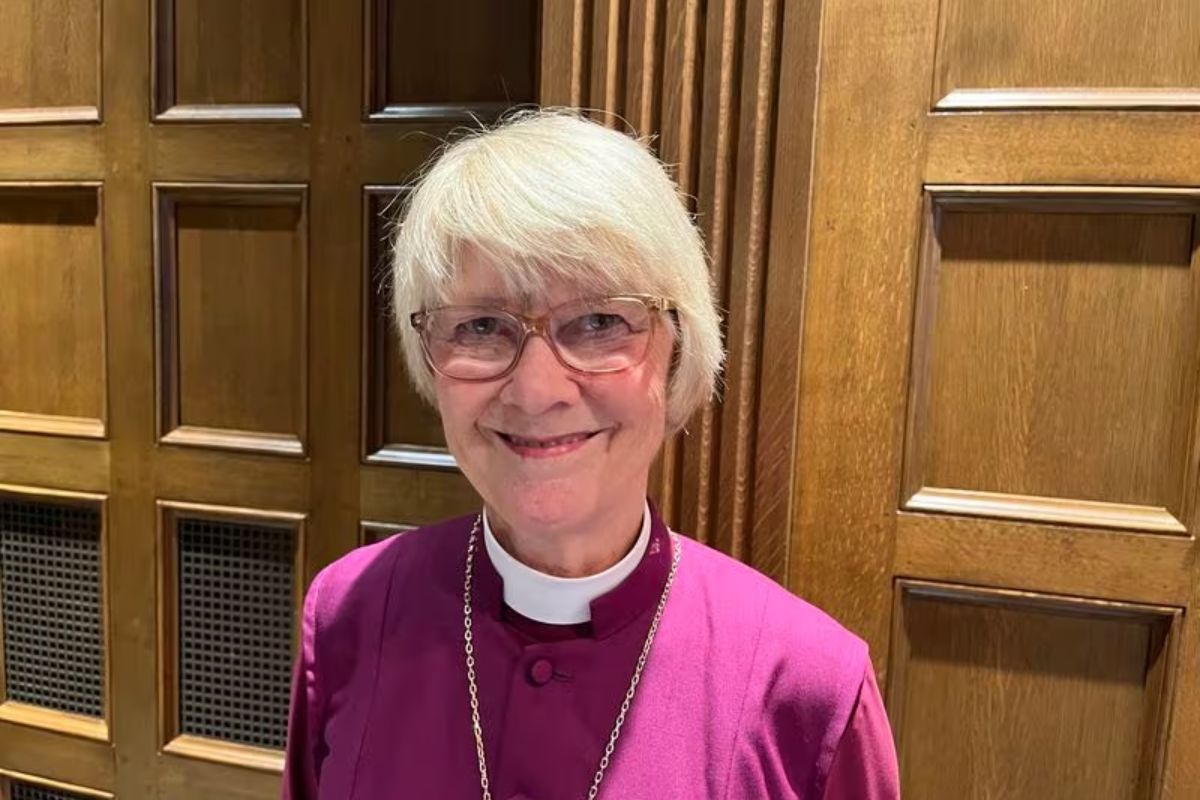Bishop Shuts Huntsville Church: The recent closure of a historic church in Huntsville has left many in the community reflecting on its legacy of service and commitment to fostering interracial harmony.
Despite the somber note of this chapter’s end, the bishop’s announcement of an exciting venture in McCalla has sparked intrigue and speculation among locals and church members alike.
The transition to this new endeavor promises to bring a fresh perspective and innovative approach to the Diocese’s endeavors, hinting at a future filled with potential and promise.
Key Takeaways
- Closure of Holy Cross-St. Christopher Church in Huntsville due to declining membership and structural issues.
- Transition to repurposing the church for benevolent causes in McCalla.
- Launch of Riverside Church in McCalla by Bishop Curry as a new faith community.
- Legacy of Holy Cross-St. Christopher Church lives on through community impact and new church planting initiatives.
Historic Interracial Church in Huntsville Closes After Decades of Service
The Holy Cross-St. Christopher Episcopal Church, an emblem of unity and history in Huntsville, has bid farewell after decades of service, marking the end of an era for its vibrant congregation. Established in 1976 through the merger of an all-white and an all-Black congregation, this historic interracial church stood as a symbol of progress and inclusivity in a time of racial division. Bishop Glenda Curry‘s decision to declare the church dormant due to declining membership and maintenance challenges has brought about a sense of nostalgia and reflection among its members.
Over the years, the Holy Cross-St. Christopher Episcopal Church has been a beacon of hope and a place of worship for individuals from diverse backgrounds, fostering a sense of community and togetherness. Its closure signifies not only the end of a physical structure but also the dispersal of a tightly-knit community that has weathered many storms together. Despite its closure, the legacy of this church will continue to live on in the hearts of those who were touched by its message of love and unity.
Church’s Rich History and Formation
With a heritage rooted in the academic community of Alabama A&M, the formation of Holy Cross Episcopal Church in 1954 marked the beginning of a significant chapter in Huntsville’s religious history. Founded by eight faculty members, the church originally held its services in a humble trailer near the campus until the completion of its permanent building in 1963. Notably, in 1961, St. Christopher’s Episcopal Church was established as a separate congregation. However, the true milestone came in 1976 when the two congregations, one Black and one White, boldly merged, setting a precedent for interracial cooperation in a time of segregation.
Key Milestones:
| Year | Event |
|---|---|
| 1954 | Holy Cross Episcopal Church founded |
| 1963 | Construction of dedicated church building |
| 1976 | Merger of Holy Cross and St. Christopher’s Church |
This merger not only solidified the church’s commitment to diversity but also laid the foundation for its reputation as a welcoming and inclusive place of worship.
Gradual Decline and Building Issues
Experiencing a steady decrease in membership and grappling with unresolved structural issues, Holy Cross Episcopal Church found itself at a critical juncture in its history. The church, once flourishing, saw its membership dwindle to just four individuals – one Black and three white – marking a stark contrast to its vibrant past.
Structural problems plagued the building, with a roof collapse being a prominent issue left unaddressed. These challenges culminated in the building’s condemnation, forcing the church to make the tough decision to declare it dormant. The decline in membership coupled with the building’s deteriorating state painted a grim picture for the future of Holy Cross Episcopal Church.
Despite its rich history and significance, the church’s inability to overcome these obstacles led to a period of uncertainty and transition, prompting reflections on its legacy and the path forward.

ALSO READ: Alabama House Considers Prohibition of Squatted Trucks
Closure and Transition to Benevolent Causes
Amidst the challenges faced by Holy Cross Episcopal Church, the decision to close its doors paved the way for a new chapter focused on contributing to the community through benevolent initiatives.
In 2020, Bishop Glenda Curry conducted a de-consecration service, signifying the end of worship services in the building. Despite attempts to sustain the church through a Bible study in a nearby Methodist church annex, the remaining members opted not to relocate to another Episcopal church.
Subsequently, the diocese made a significant decision to donate the church building to a development corporation with the intention of repurposing it for benevolent causes that would serve the broader community.
This strategic move aligns with the church’s mission to continue making a positive impact even beyond its physical presence, ensuring that the spirit of compassion and service ingrained in Holy Cross Episcopal Church perseveres through initiatives that benefit those in need in the Huntsville area.
Diocesan Initiatives and New Church Planting
Embarking on a path of innovation and growth, Bishop Curry has spearheaded diocesan initiatives that include the establishment of Riverside Church in McCalla, marking a dynamic shift towards fostering new faith communities.
Despite the closure of Holy Cross-St. Christopher, the diocese’s commitment to adapt and thrive is evident in this strategic move. Riverside Church is set to commence services in April, choosing a non-traditional approach by utilizing a McAdory School building for its initial gatherings. This unconventional choice showcases a willingness to explore different avenues for community building and worship.
Conclusion Of Bishop Shuts Huntsville Church
The closure of the historic interracial church in Huntsville marks the end of an era of service and community outreach.
Despite the challenges faced leading to its closure, the church’s rich history and formation will not be forgotten.
The transition to benevolent causes and the diocesan initiatives for new church planting in McCalla show a commitment to continuing the legacy of service and outreach in the community.

